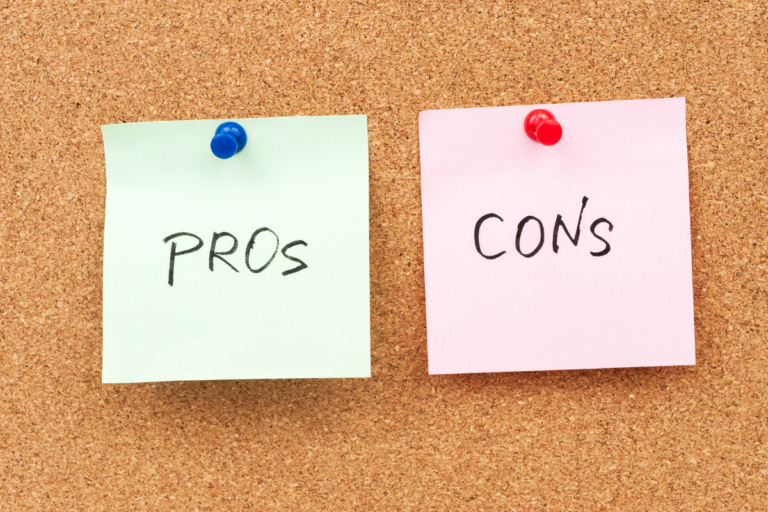Deciding whether to file a lawsuit is a very personal and important decision and depends on many factors that are unique to each case.
In typical personal injury cases, there is an initial investigative phase, during which evidence is gathered, such as police records, witness accounts, insurance information, and so on, while the injured person continues to seek medical treatment. Based on the information collected, the parties may attempt to negotiate a reasonable settlement.
The results of those negotiations may be a “pro” or may be a “con” for filing suit. If a settlement offer appears reasonable, it makes less sense to file a lawsuit than when a settlement offer is so low (or non-existent) that the injured person would likely be better off by going to court.
THERE ARE ALSO OTHER GENERAL PROS AND CONS TO CONSIDER:
PROS:
- Pre-lawsuit investigations can only get you so far. There is a lot of information, especially about the person or entity that injured you, that you can’t get unless you file a lawsuit. Once a lawsuit is filed, you can do things like make them answer questions either in writing or in a deposition, turn over relevant documents and other physical evidence, and so on. All of which can help support your case. The more “unanswered questions” there are during the investigative process, the more heavily this factor weighs in favor of filing.
- Insurance companies know most people don’t want to file a lawsuit or go to court. Filing suit can send the message that you are serious, which can result in better settlement offers later in the case.
- The defendant may never make a reasonable settlement offer, in which case filing suit means you get to make your case to a jury.
CONS:
- The discovery process cuts both ways. Just as a plaintiff can force a defendant to answer certain questions or turn over certain documents, the defendant can also do the same of the plaintiff. In that way, many parts of a plaintiff’s life become an “open book,” at least to the parties to the lawsuit.
- Lawsuits are expensive – one of the biggest expenses being hiring experts to support your claims.
- Lawsuits are risky. If the case never settles and goes to trial, a jury will decide whether the defendant was at fault and the amount of damages suffered by the plaintiff. The plaintiff could lose entirely. The plaintiff could win but get a verdict that is not as good as any of the prior settlement offers – particularly after the added costs of getting to trial are taken into account. Or the plaintiff could win and get a good verdict. At trial, there are no guarantees.
- Lawsuits take time. It usually takes at least a year, if not more, before a case gets all the way to trial. Though a case can settle at any time before that point.
In the end, deciding whether or not to file a lawsuit is something you should talk about in detail with your attorney. They are there to help outline the pros and cons specific to your case and to help you decide what choice makes the most sense in your case – because, ultimately, it is always your decision to make.
To learn more about filing a potential personal injury case, schedule your free consultation today.
